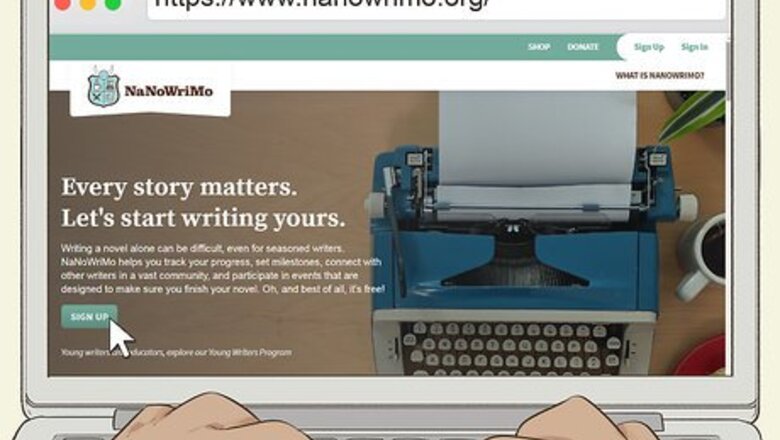
views
NaNoWriMo is known as NaNo for short, and started when Chris Baty challenged some of his friends to write 50,000 words in one month in 1999. It has grown to over 100,000 participants worldwide, of whom more than 15,000 finished in 2007. [1]
X
Research source
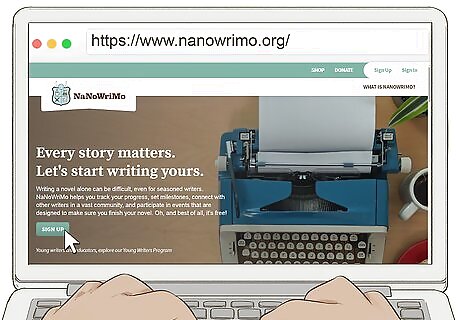
Visit Nanowrimo.org and sign up for an account. The competition begins on November 1, but you can sign up any time during the year. For those of you under 13, you can sign up for their Young Writer's Program. (NaNoWriMo also has "Camp NaNoWriMo" which is during April and July.)

Join the forums for support in your novel and help. They help get you excited to write and are full of information to make your novel more realistic, ideas to pad your word count, links to online thesauri and dictionaries, and even a forum for other writers in your region. Lurking and posting at the forum will give you more determination to keep going, because you will be surrounded by people doing the same thing.
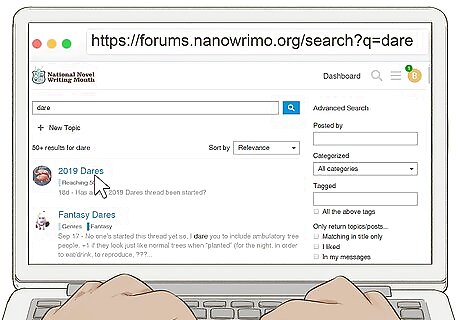
Pick up some NaNoWriMo dares from the forum. Dares are silly (or not-so-silly) plot twists, characters, or objects that you try to work into your novel. NaNoWriMo is all about quantity, not quality, so many writers work in as many dares as possible. One of the most popular dares is the Traveling Shovel of Death™, a shovel that is used to kill or bludgeon characters. Another popular amusement is to incorporate characters whose names are anagrams of "NaNoWriMo": Mr. Ian Woon, Norman Iwo, and so on.

Read "No Plot? No Problem" by Chris Baty. This person started it all. The book is, of course, optional. However, it is great preparation for November and keeps some brain cells occupied in October while waiting for November. There are some great tips and you will get a preview of what to expect during those four glorious, fantastic, fabulous, and grueling weeks. In addition, help you customize the supplies you should lay in before November 1 hits.
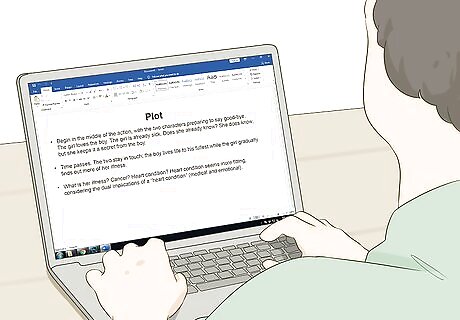
Develop a plot. Do not be afraid to drop by the adopt-a-plot thread in the forums; those are up for grabs. You do not need to make it detailed; you do not even need to follow it completely. Chapter summaries will do, and the plan is just for if you go into a corner and cannot continue. Do not be afraid to veer off the plan or change completely. Many NaNoWriMo writers title their novel and name their characters before they have even thought of a plot. It is perfectly acceptable under the rules of NaNoWriMo to outline your plot before November 1. You may bring in as many notes and supporting documents as you wish, but the work of fiction itself must be written during November.

Prepare a writing spot. In order to validate your word count, your final submission must be in .txt format or an electronic document you can copy and paste as text, but you can hand write or use a typewriter, and enter it into a computer after it is finished. Have a lamp and a comfortable chair—you will be spending a lot of time there.
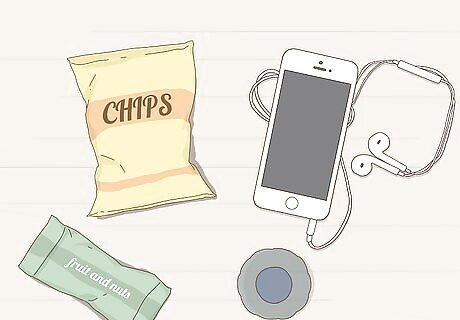
Get together your "NaNoWriMo Survival Kit." Writers stock up on energy drinks, soda, and one-handed snacks so they do not have to leave their writing spot while they are writing. Many also prepare specific "writing playlists" of CDs or MP3s to listen to. Buy a supply of notebooks and your favorite pens to carry around for whenever inspiration strikes. Start writing immediately when November begins. Midnight (in your time zone) on November 1 is the official start of NaNoWriMo. You should have your notes handy, and just start writing based on what you have plotted out. Refer to them often, because you may forget a key component later, which means you have to think some more. Keep a list of your characters as you name them. You may be surprised at how quickly you will forget who was who. A simple page or text document will help you keep them in order. Don't go back and reread your previous day's writing each day; you will be tempted to fiddle with it. Read back only enough to get your place in the story and continue. Notes will help you keep your place without too much back reading. Do not delete words. The backspace key will only reduce your word count; do not let it! If your novel is utter junk, well, you are not alone. Someday you will look back at the hilarious typos and the Freudian slips and laugh. (Also, there is a thread in which to post such amusing disasters.) Try to overdo it the first week. Try to get 20,000 words by the seventh day. No doubt, it will be nearly impossible to do it, but even if you do not make 20,000, you will be a good bit ahead in case you miss a day of writing. Try to hit 35,000 by the next week, 45k the following week, and 50k in the next few days. See the pattern? You have a smaller and smaller goal every week. This is to accommodate for writer's block, which you may get from time to time. However, don't overwhelm yourself so much that you experience burnout. This is optional, but it does help you stay positive and encourages you to keep going. Keep track of your word count. You can update your word count at any time through your user profile. The website keeps a graph of these updates. Read How to Freewrite and do it.

Develop your story. You may have only a vague idea of where you are going. That is all right. The objective here is quantity, not quality. Still, your story will be easiest to write if it is interesting. Do not be afraid to throw in a complication. Kill a character, have somebody get pregnant, bring in a new villain, or reveal the extent of a character's flaws. Then, see how your characters react. Take the plot somewhere, even if it is not where you intended. Sometimes the surprises are the most fun.
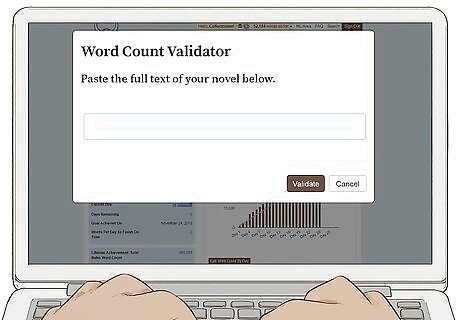
Verify your word count. Now for the hard, painful part: when midnight, local time, the night of November 30 hits, stop. Even if you have not hit 50,000, you must stop now and turn in your word count. You can finish writing it if you think you have anything to salvage, but your word count as of the end of November 30 is your final NaNo word count. Remember that even if you only hit 10 or 20k, that's more than most people ever write. To verify your word count, you will upload your entire manuscript or paste it into the website once at the end of the month. The NaNoWriMo website does not save or publish your manuscript, but if you are concerned about anybody reading your story, there is a tool available that will jumble the manuscript so it will become unreadable without altering the word count. Verify your word count early if you can. The website gets a great deal of traffic during the first and last couple of days of November. Verification is available starting on the 25th of the month. If you have reached the 50,000-word goal, you will receive a downloadable certificate, your name will appear on the list of winners, and in December, you'll be able to collect your prizes.
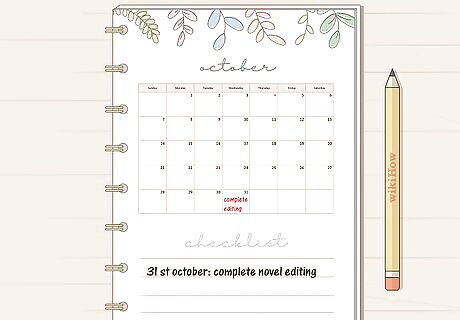
Plan when you will edit your novel. In the spirit of NaNoWriMo, you should have done no editing during November, which means your novel will need cleanup to be the best it can be. If you decide to work with it, expect to put in a year or so of editing to get it ready for others to see.

Decide whether to share your finished novel (or soon to be finished novel), and how. If so, give copies to friends, family, and other NaNoWriMo authors. A few NaNo authors do publish their books in print with book publishers, but most manuscripts require extensive revision to achieve that quality. It is easy to publish a manuscript online. Be sure to mark it with your copyright or a free license of your choice. The other option is to self publish, which many people do, or you may also go through a traditional publishing house.














Comments
0 comment